Everything you need to know about Queen Latifah
Queen Latifah has made a career out of breaking barriers. Here’s everything to know about this artist, actress and activist.
When Queen Latifah arrived on the rap scene, she changed everything and paved the way for more female artists to rise to stardom. Now, she continues to shine as an entertainer as well as a voice for women in the entertainment industry.
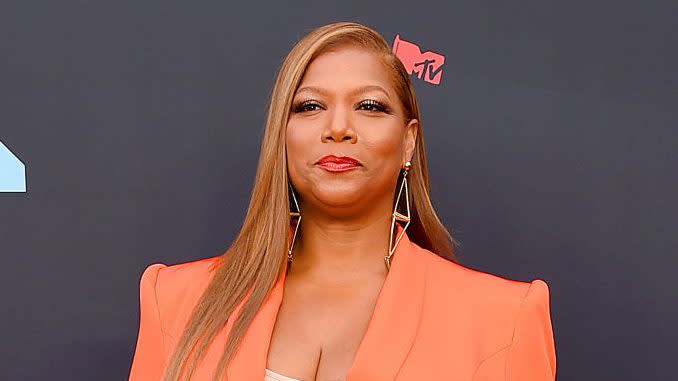
Early life
Dana Elaine Owens was born on March 18, 1970, in Newark, New Jersey, to Lance and Rita Owens. She showed an early interest in music, singing in the choir at Shiloh Baptist Church in nearby Bloomfield as a child and playing Dorothy in St. Anne’s parochial school’s production of “The Wiz.”
By the time she hit high school, she had formed an all-girls rap group called Ladies Fresh. She established a stage name using the nickname “Latifah” that she had been given as a child, which means “delicate and sensitive” in Arabic. As Queen Latifah, she recorded a demo tape that got Tommy Boy Records’ attention, and at the age of 18, she was signed to the label.
She redefined the rap genre
Right out of the gate, Queen Latifah proved that she was ready to take the world by storm. Her first single, 1988’s “Wrath of My Madness,” and her first album, “All Hail the Queen,” released in 1989, caught the world’s attention. Her second album with Tommy Boy Records, “Nature of a Sista’,” didn’t do as well as her debut, though, and the label dropped her.
Motown Records signed Latifah next, and in 1991, she released the album “Black Reign.” Her third album was a huge hit, and she ended up winning a Grammy for the song “U.N.I.T.Y,” which called out sexism and domestic violence with lyrics like “A man don’t really love you if he hits ya.” She also released her fourth album, “Order in the Court,” with Motown. But her next Grammy nod came for “Go Head,” the only single released from “She’s a Queen: A Collection of Hits,” which was released in 2002. It got a nomination for best female rap solo performance in 2004.
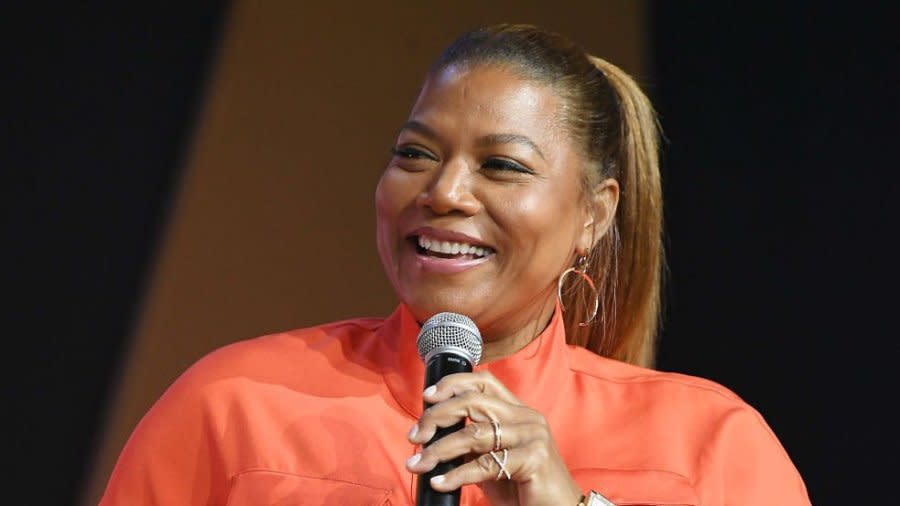
Queen Latifah’s next two albums tapped into different genres. “The Dana Owens Album,” released in 2004, netted her a Grammy nomination for best jazz vocal album. Then, 2007’s “Trav’lin Light” won her a Grammy nomination for best traditional pop vocal album. She went back to hip-hop with her next album, “Persona,” which was released in 2009.
While Latifah’s discography is powerful in every way, she is especially remembered for changing the genre. She was a trailblazer, not only breaking the glass ceiling in rap but also using her lyrics to call out real-world problems, such as violence against women.
In 1998, she was the first rap artist to perform at the Super Bowl, and this year, she will be the first female rapper to be a Kennedy Center honoree. For decades, she has shown that there is no barrier she can’t break through.
Television and film career
In the early 1990s, Queen Latifah started her foray into acting with small roles in films like “House Party 2” and “Jungle Fever,” and a guest appearance on “The Fresh Prince of Bel-Air.” In 1993, she starred as Khadijah in the sitcom “Living Single,” which ran for five seasons. From 1999 to 2001, she had her own show, “The Queen Latifah Show,” which was revived in 2013 but canceled after two seasons.
It was her role in 2002’s “Chicago” that netted her critical acclaim, though. The film won the Oscar for best picture, and both Latifah and her co-star Catherine Zeta-Jones were nominated for best supporting actress, with the award ultimately going to Zeta-Jones. Latifah was nominated for a BAFTA for the same role and won a BET Award for her part in “Chicago.”
Five years later, in 2007, she again was part of a Broadway adaptation, this time in “Hairspray.” In 2019, she played the role of Ursula in a production of “The Little Mermaid Live!”
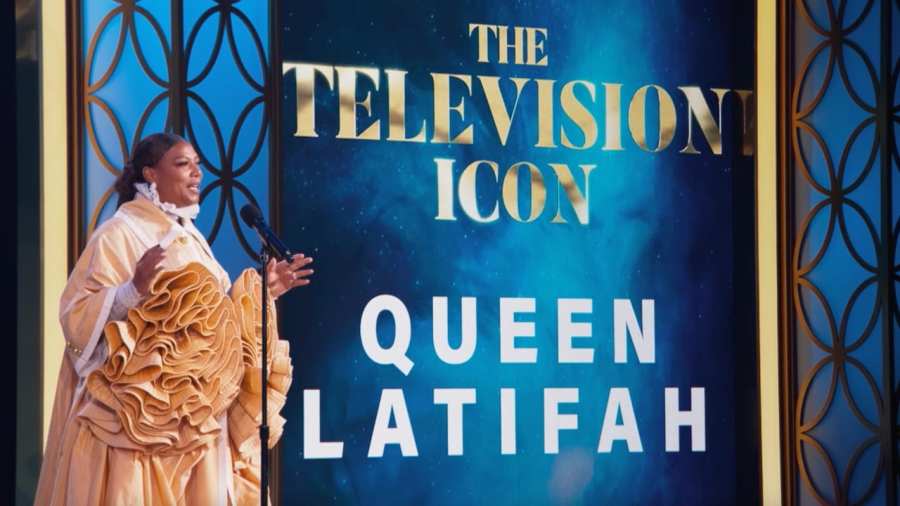
Over the years, she has starred in hits like “Last Holiday,” “The Secret Life of Bees,” “Taxi,” “Joyful Noise,” “Girls Trip” and “Life Support,” a television movie that won her an Emmy nomination as well as a Golden Globe and Screen Actors Guild Award for her portrayal of an HIV-positive woman. She was nominated for an Emmy for best actress in 2015 for HBO’s “Bessie.” She currently stars in a reboot of the television drama “The Equalizer,” which debuted in 2021. Latifah also has also lent her voice to animation, notably in the “Ice Age” movie series, and lately has turned her talents toward producing.
Latifah has continued to win awards, including a BET Lifetime Achievement Award in 2021, the Elle Women Icon Award in 2004, the Essence Black Women in Hollywood Power Award in 2010 and a star on the Hollywood Walk of Fame in 2006. TheGrio presented her with the Television Icon Award in 2022.
Using her platform for activism
Queen Latifah has never been shy about what she cares about and has used her music to draw attention to causes dear to her heart. Beyond her powerful lyrics, though, she has continued to use her platform to help others.
Back in the early ’90s, her mother set up the Lancelot H. Owens Scholarship Foundation, named in honor of her son, who died in 1992. It helps promising students who otherwise could not afford college pursue higher education. Although her mother, who had a heart condition, passed away in 2018, Latifah continues to honor her brother through the foundation.
What’s more, Queen Latifah is determined to help others in the entertainment industry make it and is especially working to get more women behind the camera. Through the Queen Collective, Latifah encourages talented women to reach their potential and champions upcoming creatives.
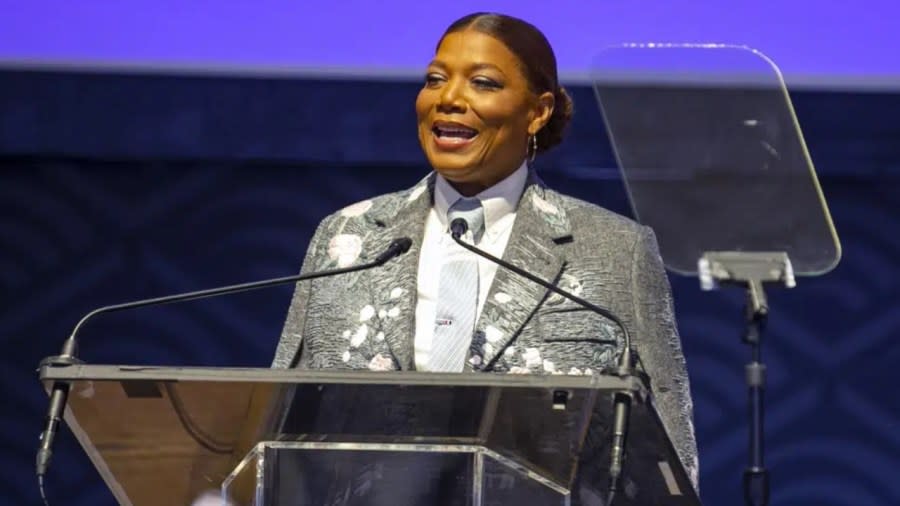
She has spoken out about discrimination, such as when she told CNN in an interview about the protests following George Floyd’s death:
“The police need a way out of their own system. If they can’t do it themselves and they’re trapped in their own cycle of repeating and they can’t get off this hamster wheel of having terrible, racist, dangerous cops and terrible policing tactics, then we need to help them by changing it. If we’ve got to dismantle it, reform it, defund it, whatever those in power are beginning to figure out as a way to change it, they need to do that … because they can’t keep killing us.”
There’s no doubt that Queen Latifah will continue to speak out about injustice and in support of new voices for change.
Personal life
Queen Latifah has been careful not to let too much of her personal life become public, though rumors have swirled around her sexuality for years. In fact, her famous beef with Foxy Brown led to the latter suggesting she was a lesbian in her diss track. Latifah clapped back with “Name Callin’ Part II” and is largely seen as having won that particular rap battle.
“I don’t have a problem discussing the topic of somebody being gay, but I do have a problem discussing my personal life,” Latifah told The New York Times in 2008.
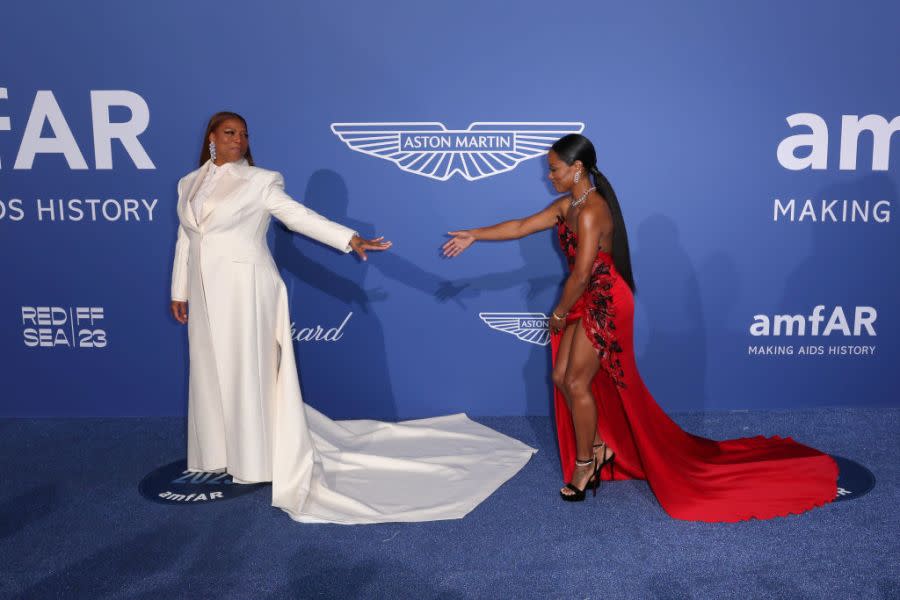
Latifah has been rumored to have been romantically linked to her trainer, Jeanette Jenkins, particularly when Jenkins and Latifah were spotted together being affectionate on a yacht.
But since 2013, she has been with Eboni Nichols, and the two now share a son together. Nichols was spotted with a baby bump in 2018, and in 2019, Latifah said at the BET Awards, “Eboni, my love; Rebel, my love,” referring to her son. But it wasn’t until 2022 that Nichols and Latifah were photographed with little Rebel. The two have continued to keep things quiet, keeping the media away from their family.
Everywhere she goes, Queen Latifah proves that she deserves a seat at the table, and we love to see her star shine.
The post Everything you need to know about Queen Latifah appeared first on TheGrio.
